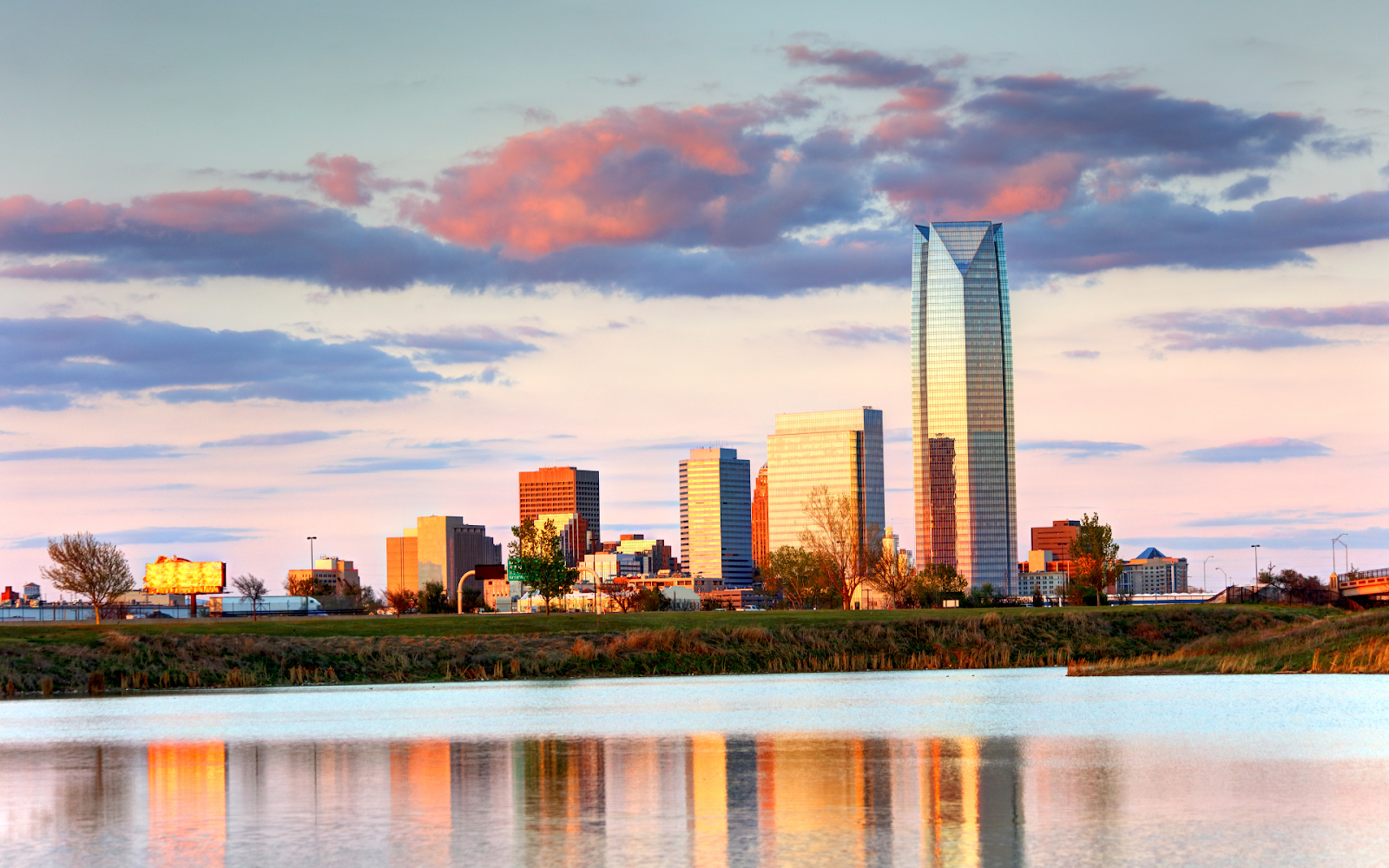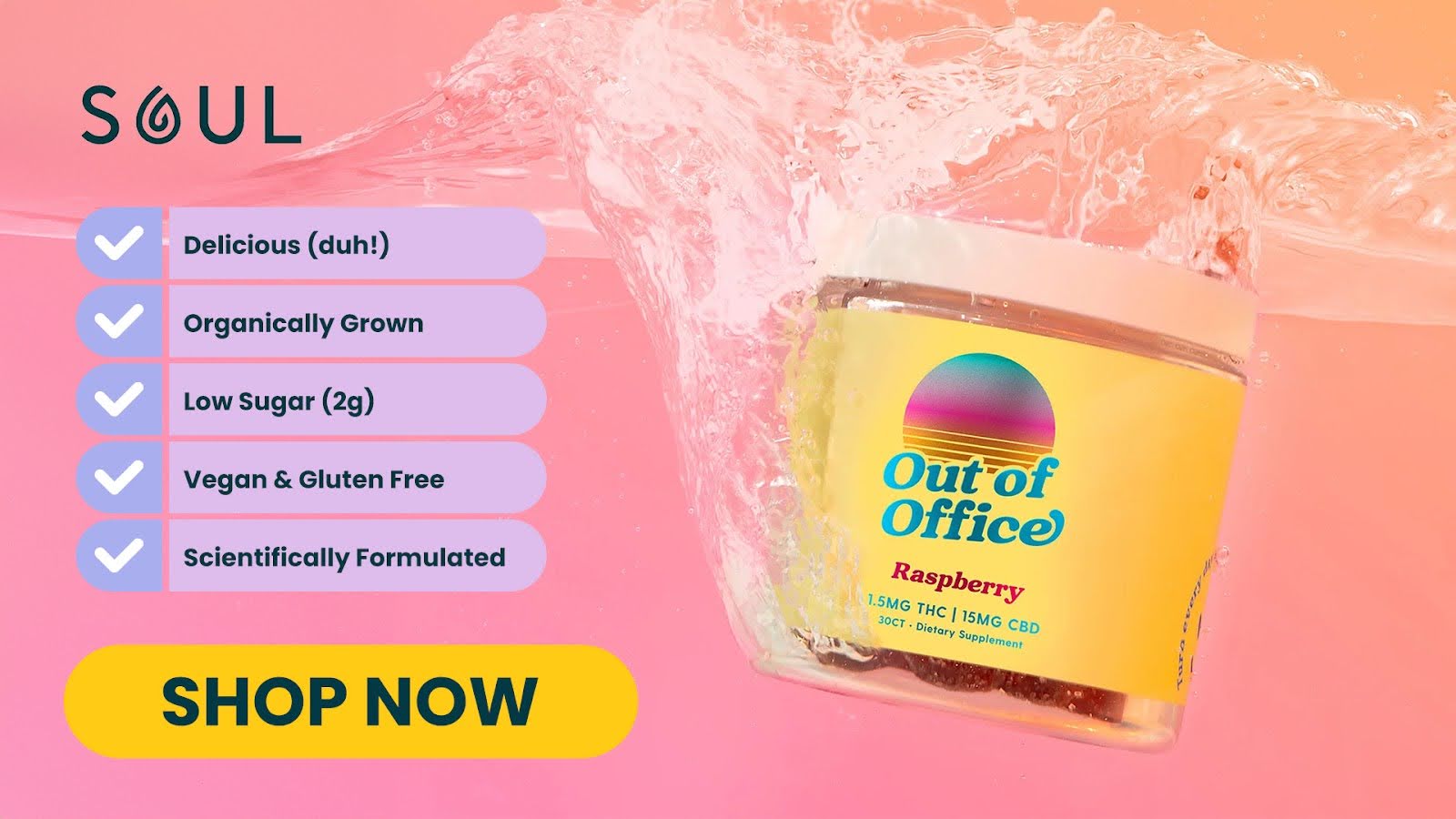
Key Takeaways:
- Medical vs. Recreational: Medical Hemp is legal in Oklahoma, but recreational THC remains illegal, with strict penalties for non-compliance.
- Legal Protections and Restrictions: While there are protections for medical Hemp users, employers and landlords can impose restrictions based on federal laws and property rights.
- Future Legislation Potential: The landscape of THC legislation in Oklahoma could change, influenced by public opinion and potential economic benefits from recreational legalization.
At Soul, we pride ourselves on our commitment to enhancing your well-being with our expertly crafted THC products. As a leader in the cannabis industry, we understand the importance of staying informed about the legal landscape surrounding THC, particularly in places like Oklahoma where the laws are rapidly evolving. In this piece, we will delve into the current legal status of THC in Oklahoma, exploring both medical and recreational aspects. We'll discuss the nuances of medical legalization, the strict limitations on recreational use, and the penalties associated with non-compliance. Whether you're a resident or a visitor, understanding these regulations is essential for navigating the legal complexities of THC use in the state.
Understanding The Difference Between Medical And Recreational Use
In Oklahoma, the distinction between medical and recreational use of THC is significant and impacts the legalities surrounding its possession and use. Medical use of THC was legalized in 2018 through State Question 788, which allowed patients with a medical Hemp license to purchase and use Hemp legally. Licensed patients are permitted to carry a defined amount of cannabis and even grow their own plants under specific regulations.
Recreational use of THC, however, remains illegal in Oklahoma. Despite medical legalization, using or possessing THC without a valid medical license can lead to legal consequences. This distinction underscores the importance for residents and visitors to understand and comply with the state's laws regarding THC.
Current Laws Governing THC In Oklahoma
Oklahoma has established a comprehensive framework for medical Hemp since its legalization in 2018. Here are the key components of the current laws governing THC in the state:
Medical Hemp Legalization
Oklahoma legalized medical Hemp in 2018 through State Question 788, which was a significant shift in the state's drug policy. This legalization allows individuals who have obtained a medical license to legally purchase, possess, and consume Hemp for medical purposes. The state has seen a rapid increase in registered patients and dispensaries since the law's implementation.
Possession Limits
Under Oklahoma law, individuals with a medical Hemp license are allowed significant possession limits to ensure they have adequate access to their medication. Licensed patients can carry up to 3 ounces of Hemp on their person, which is enough for several weeks of regular use for many patients. Additionally, they can keep up to 8 ounces at their residence, ensuring a sufficient supply without frequent trips to dispensaries.
Cultivation Rights
In addition to purchasing Hemp, medical license holders in Oklahoma are permitted to cultivate their own cannabis plants, which can be a cost-effective way to maintain a consistent supply. Each licensed individual can grow up to six mature Hemp plants and six seedlings at a time. This provision supports patients who may prefer specific strains that are either too expensive or not readily available in dispensaries.
Dispensary Operations
Oklahoma has a robust network of over 2,000 dispensaries, making medical Hemp accessible to patients throughout the state. These dispensaries are regulated by the Oklahoma Medical Hemp Authority, which ensures that they operate within the state laws and provide safe, reliable products to patients. The variety of THC products available includes flowers, edibles, tinctures, and topicals, catering to the diverse needs and preferences of patients.
No Recreational Legalization
Despite the progressive stance on medical Hemp, recreational use of THC remains illegal in Oklahoma. The state has not passed any legislation to legalize recreational Hemp, and there are strict penalties for possession, sale, or use of Hemp without a medical license. This strict division underscores the state's current policy to support medical use while controlling recreational consumption.
Penalties For THC Possession In Oklahoma
In Oklahoma, the penalties for THC possession vary significantly depending on whether the individual has a medical license and the amount of Hemp involved. Here's a breakdown of the penalties for THC possession in the state:
Without A License
Possession of Hemp without a medical license in Oklahoma is illegal and results in criminal penalties that may include fines and incarceration. The severity of these penalties depends on the amount of Hemp in possession and any prior offenses. This strict enforcement underscores Oklahoma's policy to regulate the use of cannabis strictly to licensed individuals for medical purposes only.
Small Amounts
In Oklahoma, possessing small amounts of Hemp (up to 1.5 ounces) without a license is treated as a misdemeanor. This carries a potential fine but typically no jail time, particularly if the individual can demonstrate a medical condition. This provision aims to prevent harsh penalties for minor infractions, though it still underscores the necessity of obtaining a medical license for legal protection.
Large Amounts
Possession of large amounts of Hemp without a medical license is a more serious offense and is classified as a felony in Oklahoma. Individuals caught with significant quantities can face substantial fines and lengthy prison sentences. These severe penalties are intended to deter large-scale possession and distribution by unlicensed persons.
Distribution And Trafficking
Engaging in the sale, distribution, or trafficking of THC without a proper license is one of the most severe drug offenses in Oklahoma. These actions can result in extensive prison sentences and heavy fines, reflecting the state's stringent measures to control the distribution and ensure safety and regulation compliance.
DUI Charges
Operating a vehicle under the influence of THC is illegal in Oklahoma and treated with the same seriousness as driving under the influence of alcohol. Penalties for a THC-related DUI can include fines, license suspension, and even jail time, depending on the circumstances and whether it's a repeat offense. These laws aim to ensure public safety on the roads by deterring impaired driving.
Impact Of Federal Laws On Oklahoma's THC Regulations
The interaction between federal laws and Oklahoma's state regulations on THC presents a complex legal landscape for users and businesses alike. Here’s how federal legislation impacts THC regulations in Oklahoma:
Federal Illegality
THC is still classified as a Schedule I drug under federal law, which defines it as having no accepted medical use and a high potential for abuse. This classification remains in force despite Oklahoma and other states legalizing Hemp for medical and, in some cases, recreational purposes. This federal stance creates a complex legal landscape where state laws allow use that federal law prohibits.
Banking Restrictions
The federal illegality of THC imposes significant operational challenges on businesses in the industry, particularly in terms of banking. Financial institutions, governed by federal law, often deny services to Hemp-related businesses to avoid the risks of federal enforcement action. This leads to a reliance on cash transactions, which can pose security risks and complicate business operations.
No Interstate Transport
Federal regulations strictly prohibit the interstate transport of Hemp, classifying it as drug trafficking, even if the transport is between two states where Hemp is legal. This restriction affects businesses and consumers by limiting the market, potentially affecting the availability and price of Hemp products across state lines.
Employment Implications
Employers across Oklahoma must navigate a delicate balance due to the discrepancies between state and federal Hemp laws. Many employers continue to enforce strict drug-free workplace policies, which can include drug testing that adheres to federal standards, potentially leading to the termination of employees who legally use Hemp under state law but violate federal drug-free workplace mandates.
Research Limitations
Federal restrictions severely limit the scope and funding of research into Hemp and its components like THC. This is a significant barrier to scientific study and medical advancement, as researchers often struggle to obtain the necessary approvals or funding for studies that could elucidate Hemp's benefits and risks more clearly.
Legal Alternatives To THC In Oklahoma
In Oklahoma, individuals looking for non-psychoactive alternatives to THC have a variety of legal options available. Here's an overview of the legal alternatives to THC in the state:
Cbd Products
In Oklahoma, Cannabidiol (CBD) is a popular and legal alternative to THC. Derived from the hemp plant, CBD products do not induce the psychoactive effects associated with THC, making them suitable for a wide range of users. These products are commonly used to manage conditions such as anxiety, chronic pain, and insomnia, and are available in various forms including oils, tinctures, and topical creams.
Hemp-Derived Products
The 2018 Farm Bill marked a significant change in the legal status of hemp and its derivatives, establishing legality for hemp-derived products containing less than 0.3% THC. In Oklahoma, these products are legal and include a variety of applications such as dietary supplements, textiles, and biodegradable plastics. Hemp oils and seeds are particularly valued for their nutritional benefits, high in omega fatty acids and protein.
Medical Non-Thc Options
For patients in Oklahoma looking for therapeutic benefits without the psychoactive effects of THC, there are FDA-approved alternatives. Medications like Epidiolex, which is a CBD-based treatment for seizures associated with two severe forms of epilepsy, offer relief without THC. These pharmaceutical-grade options provide clinically tested efficacy and safety for users with specific medical conditions.
Synthetic Cannabinoids
Synthetic cannabinoids like dronabinol and nabilone are legal, prescription options available in Oklahoma for treating symptoms like nausea and lack of appetite, often associated with cancer treatments. These medications mimic the effects of natural cannabinoids and are an option for patients who require the therapeutic benefits of cannabinoids without using cannabis directly.
Holistic And Natural Alternatives
Beyond cannabinoids, many Oklahomans explore holistic and natural therapies to manage health conditions. Techniques such as acupuncture, meditation, and the use of herbal supplements like valerian root or chamomile can be effective for stress relief and pain management. These alternatives do not involve any form of cannabis, thus avoiding any legal issues associated with THC.
Future Outlook On THC Legislation In Oklahoma
As Oklahoma navigates the evolving landscape of cannabis regulation, several factors could influence the future of THC legislation in the state. Here's a closer look at what might shape the upcoming changes in THC policies:
- Potential for Recreational Legalization: There is growing public support and several advocacy groups pushing for the legalization of recreational Hemp in Oklahoma, suggesting possible future legislative changes.
- Expanding Medical Access: Legislative trends may continue to expand the conditions eligible for medical Hemp use and increase the accessibility and varieties of THC products available to patients.
- Regulatory Adjustments: Ongoing adjustments to regulatory frameworks are likely as the state balances industry growth with public safety and health concerns.
- Federal Changes Impact: Any changes at the federal level, such as declassification of Hemp from Schedule I drugs, could significantly influence Oklahoma’s THC policies.
- Economic Incentives: The economic benefits derived from the medical Hemp industry might encourage further legalization efforts to boost state revenue through taxation of recreational Hemp.
Final Thoughts
Both locals and visitors to Oklahoma must be aware of the legal distinctions between medical and recreational usage as the state navigates the complicated landscape of THC legislation. While those with a license can legally obtain medical Hemp, recreational THC use is still prohibited by federal law, which also imposes severe penalties. Comprehending these subtleties is essential for adhering to regulations and making knowledgeable choices about THC consumption. In the future, legislative modifications may further alter Oklahoma's THC environment, underscoring the significance of keeping abreast of fresh information.
Read also:
Frequently Asked Questions About THC Legal Status In Oklahoma
Is it legal to transport medical Hemp from Oklahoma to another state?
No, it is illegal to transport medical Hemp across state lines, even if both states have legalized medical Hemp use.
Can non-residents apply for a medical Hemp license in Oklahoma?
Yes, Oklahoma offers temporary medical Hemp licenses to non-residents that are valid for 30 days and can be renewed.
Are there employment protections for medical Hemp users in Oklahoma?
While Oklahoma law provides some protections for medical Hemp license holders against discrimination in employment, employers can enforce drug-free policies if they comply with federal regulations or safety-sensitive job requirements.
Can landlords in Oklahoma prohibit the use of medical Hemp on their properties?
Yes, property owners have the right to prohibit the use and possession of Hemp on their premises, even for medical license holders.
Is it legal to use THC for animals in Oklahoma?
No, THC products are not legally approved for veterinary use in Oklahoma, and giving THC to animals could result in legal repercussions and health risks.
What should I do if I'm caught with THC without a medical license in Oklahoma?
It is advisable to consult with a legal professional specializing in drug law if you're caught with THC without a license, as penalties can vary based on the amount and the circumstances.
Can I use THC in public places in Oklahoma?
No, using THC in public places, even with a medical Hemp license, is prohibited under Oklahoma law.
How does Oklahoma's medical Hemp program compare to other states?
Oklahoma's medical Hemp program is noted for its relatively liberal possession limits and the ease of obtaining licenses compared to many other states.
Are edibles and other THC products also legal under Oklahoma's medical Hemp law?
Yes, licensed patients can legally purchase and consume edibles and other THC-infused products from licensed dispensaries in Oklahoma.
What are the consequences if a dispensary in Oklahoma violates state regulations?
Dispensaries that violate state regulations may face fines, license revocation, and other penalties, depending on the severity of the violation.
Sources:
- Hansen, C., Alas, H., & Davis Jr., E. (2021, June 30). Where Is Marijuana Legal? A Guide to Hemp Legalization. US News & World Report. https://www.usnews.com/news/best-states/articles/where-is-Marijuana-legal-a-guide-to-Hemp-legalization
- Washington DC Hemp Laws | WashingtonDCCannabis.org. (n.d.). Washington D.C. Cannabis Information Portal. https://washingtondccannabis.org/laws
- Inc, G. (2021, November 4). Support for Legal Marijuana Holds at Record High of 68%. Gallup.com. https://news.gallup.com/poll/356939/support-legal-Marijuana-holds-record-high.aspx
- Dorbian, I. (n.d.). Despite Some Stumbles, Total Sales In U.S. Cannabis Market Could Soar To $50.7 Billion By 2028, Says Top Researcher. Forbes. Retrieved October 18, 2023, from https://www.forbes.com/sites/irisdorbian/2023/02/15/despite-some-stumbles-total-sales-in-us-cannabis-market-could-soar-to-507-billion-by-2028-says-top-researcher/?sh=1f90e293164d






